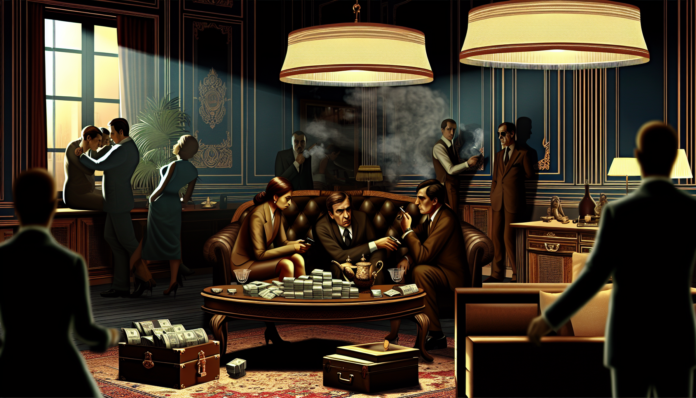Introduction
The corridors of power in the United States have long been shadowed by whispers of romance, desire, and scandal. Two of the most notable figures—John F. Kennedy (JFK) and Bill Clinton—embodied this intertwining of politics and passion, revealing much about the cultural attitudes of their respective eras. The 1960s and the late 1990s, while separated by nearly three decades, showcased shifting societal norms regarding morality, privacy, and power dynamics.
During JFK’s presidency, America was experiencing the optimism of the post-war era, yet undercurrents of stringent moral codes prevailed. In contrast, the late ’90s, marked by a burgeoning cultural revolution, saw evolving views on sexuality and accountability in politics. This article delves into the significant scandals surrounding JFK and Clinton, exploring their impact and how they resonate with today’s values.
The Scandal: JFK and the Allegations
John F. Kennedy’s charm and charisma were legendary, but his private life was rife with infidelity. Perhaps the most infamous of these affairs was his alleged nine-month liaison with actress Marilyn Monroe. The scandal gained traction after Monroe’s enigmatic “Happy Birthday, Mr. President” performance in 1962, hinted at a personal connection that enthralled the public.
Key Events and Reactions:
- Monroe’s Death: In 1962, Monroe’s untimely overdose stirred rumors linking her death to JFK. The conspiracy theories that followed fueled speculation about JFK’s associations with organized crime and the potential risks behind his affairs.
- Media Representation: The press, while cautious and often deferential towards a sitting president, could not fully ignore the swirling rumors. Coverage was often more sensational than substantive, reflecting both a fascination with celebrity culture and a reluctance to challenge the political elite.
Quote: “The most powerful man in the world, and he has time to sing ‘Happy Birthday’ to a troubled actress—what audacity!” — NY Times Editorial, 1962.
Despite the rampant speculation, JFK faced minimal political consequences. His charm and leadership during the Cuban Missile Crisis helped deflect any serious fallout.
The Scandal: Bill Clinton and the Lewinsky Affair
Fast forward to the late 1990s, and the political landscape shifted dramatically. Bill Clinton’s presidency was marred by Monica Lewinsky’s affair, which became a national obsession. The scandal unfolded as details emerged about their relationship, culminating in an extensive investigation by Special Counsel Kenneth Starr.
Key Events and Reactions:
- The Affair Revealed: In 1998, news broke of Clinton’s inappropriate relationship with Lewinsky, a 22-year-old intern, leading to allegations of perjury and obstruction of justice.
- Impeachment Proceedings: The subsequent impeachment by the House of Representatives marked a watershed moment in American politics, reflecting a highly polarized society. Clinton was acquitted by the Senate, demonstrating a stark divide in public opinion.
Quote: “I did not have sexual relations with that woman.” — Bill Clinton, 1998.
The media frenzy around the scandal was unprecedented. Late-night talk shows, tabloids, and cable news dissected every detail, making it a spectacle that dominated the cultural narrative.
Moral and Cultural Analysis
Societal Reactions:
-
1960s: JFK’s infidelities were often glossed over as part of the “political man” persona. The media’s deflection illustrated a societal reluctance to confront the private lives of powerful men. The Camelot myth persisted, safeguarding JFK from significant backlash.
- 1990s: The response to Clinton was sweeping and consequential. The public discourse evolved to favor transparency and accountability, setting a precedent where personal conduct could lead to political ruin.
Shifting Perspectives:
-
From JFK to Clinton: The embrace of celebrity culture and the rising importance of ethics in public office marked a radical shift in how scandals were perceived. Where JFK’s charm shielded him from scrutiny, Clinton faced intense and often ruthless media and public attention.
- Today’s Standards: Modern audiences are more attuned to issues of consent and power dynamics, leading to a critical lens through which both presidencies would now be viewed. The #MeToo movement has established an expectation for accountability that both leaders would have found foreign.
As we navigate the complexities of these scandals, the legacies of JFK and Clinton remind us of the intricate relationship between passion and power, and how societal values continue to evolve.

